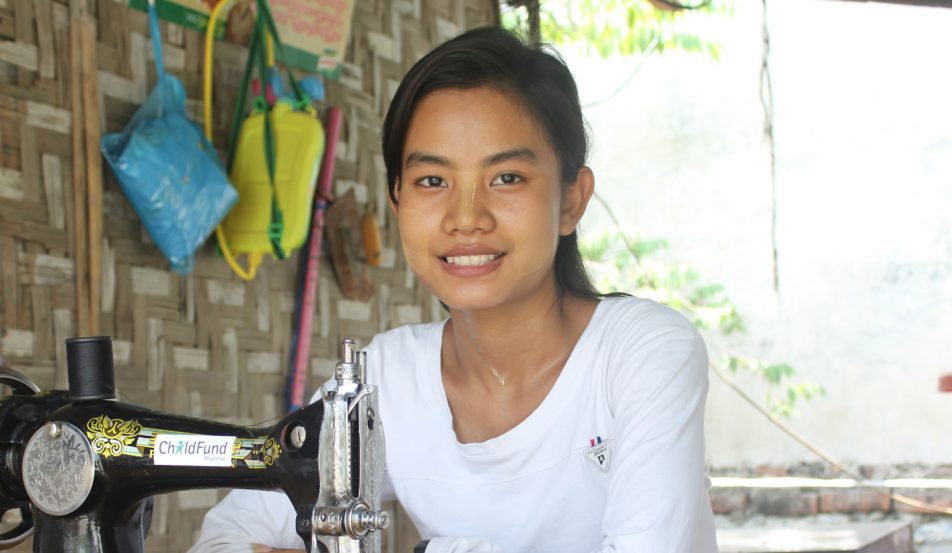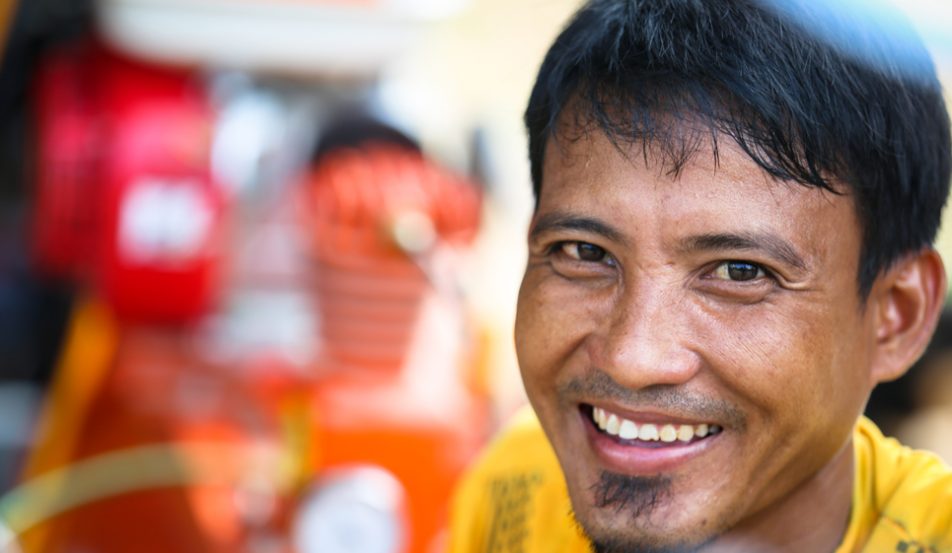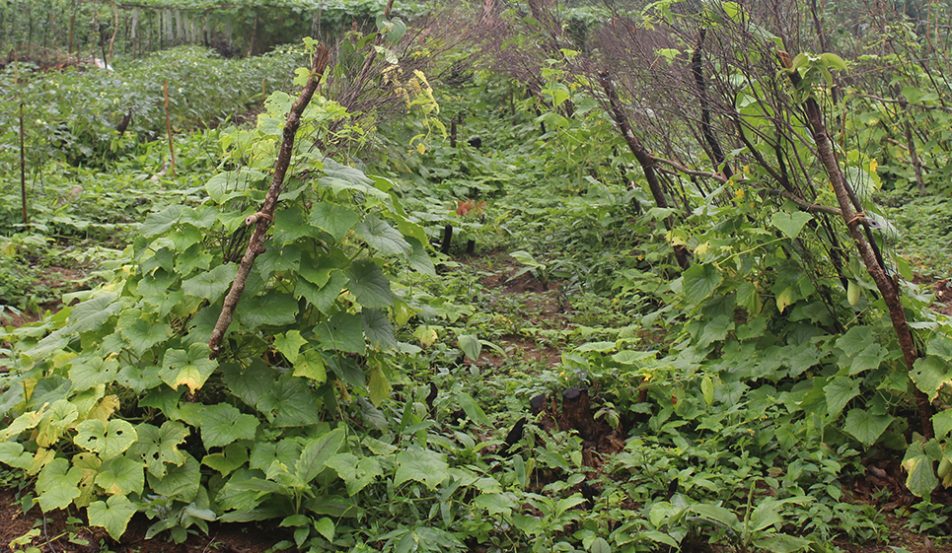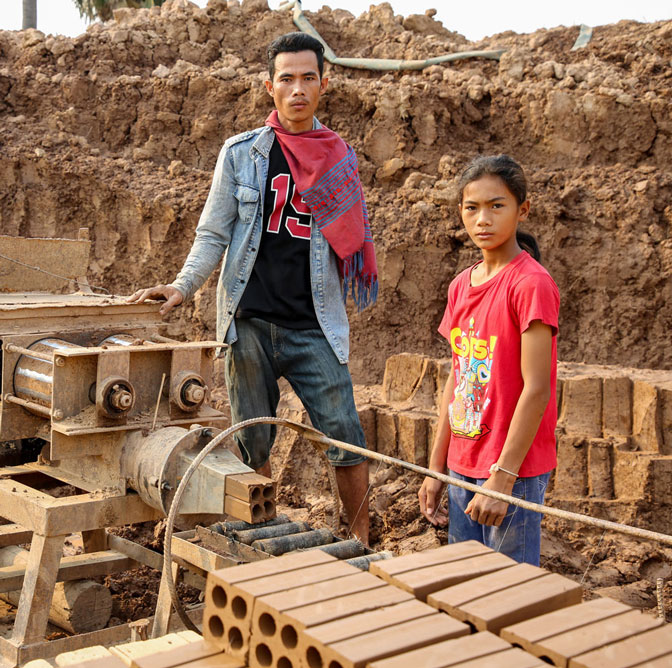Raising goats for kids in Cao Bang
Living in a small, remote village, only reachable on foot and two hours away from the commune centre, life has been difficult for Nguyet (pictured above). She explains: “It’s not always easy for us to raise our children. This is a difficult area to farm. There is not much arable soil and we can hardly make enough for our family of eight, if it wasn’t for the husbandry.”
Raising goats is a new income generation activity in Cao Bang, and is suited to the local conditions. Goats here forage in the mountains, and families don’t need large food supplies to keep them.
As a mother of four children, ranging in age from 6 months to 11 years old, Nguyet was keen to find new ways to improve the household income. Borrowing VND10 million ($US500) from ChildFund`s village credit scheme, together with the money earned from selling a cow, her family have now bought 12 goats to raise.
“We have to take good care of them, which means letting them go out to eat early. In the afternoon we walk up to the mountain, about three kilometres away, to fetch them to come home,” Nguyet explains.
ChildFund decided to introduce the goat program after conducting some research in the local area. Nguyen Thi Phuong, ChildFund’s livelihood project officer, explains: “There have been two benefits to introducing this new form of agricultural activity. First, we have diversified the income generation activities for poor households. Second, goat-rearing can minimise the risks faced by households who raise chickens and pigs – those animals often get ill and die more easily. Goat rearing is proving to be a sustainable activity which guarantees an income for families.”
Making use of local resources and choosing suitable animals for husbandry is the key to initial success. After 6-12 months, goats can either reproduce, or be sold to provide income for families. Families can then invest in bigger herds, and have income to cover the costs of their children’s food, education and healthcare.
“I hope we can make enough so that we can send our children to school; to have a better education than me and their father could. We are working and trying our best to make that happen. With education, they can definitely have a better life. Even if they choose to farm, I assume they would be knowledgeable enough to know where to farm and what to do,” shares Nguyet.






